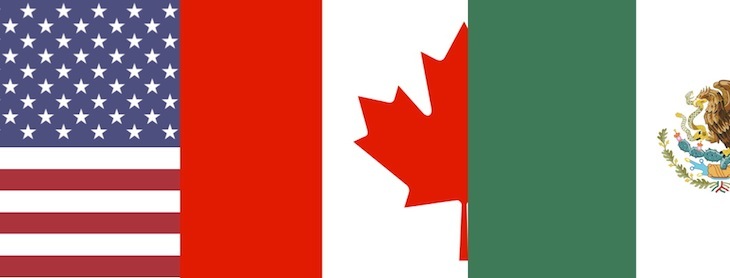New North American trade agreement heads to Congress
by December 3, 2018 8:00 am 419 views

The United States, Mexico, and Canada reached a tentative agreement to strike a new North American trade deal, and President Donald Trump has given Congress six months to approve the measure. The United States-Mexico-Canada Agreement (USMCA), would replace the North American Free Trade Agreement (NAFTA).
U.S. Rep. Rick Crawford, R-Jonesboro, told Talk Business & Politics he doesn’t think the agreement will be decided during the lame duck session of Congress, but it could be considered in the first couple of months after the New Year.
The agreement has to be approved by legislatures in all three countries. The U.S. does about a $1 trillion worth of business each year with the two countries, and Canada (second) and Mexico (third) are America’s most significant trade partners. NAFTA was created in 1994.
“It’s not a major departure from the previous agreement,” Crawford said.
According to a White House statement and information provided by the U.S. Trade Representative’s office, the new USMCA would:
- Require 75% of auto manufacturing content to be produced in North America;
- Add rules to incentivize the use of high-wage manufacturing labor in the auto sector;
- Eliminate Canada’s “Class 7” program that allows lower priced dairy products in the U.S.;
- Keep the NAFTA provision of zero agricultural tariffs between the three countries;
- Modernize intellectual property rights, including pharmaceutical and biologic drugs; and
- Institute new rules on data transfer across borders.
The agreement, if approved, would be for five years, but Crawford thinks that is a mistake. Crawford said the agreement should be for at least 10 years.
U.S. Department of Agriculture Secretary Sonny Perdue was pleased an agreement had been reached.
“The new USMCA makes important specific changes that are beneficial to our agricultural producers. We have secured greater access to the Mexican and Canadian markets and lowered barriers for many of our products. The deal eliminates Canada’s unfair Class 6 and Class 7 milk pricing schemes, opens additional access to U.S. dairy into Canada, and imposes new disciplines on Canada’s supply management system,” Perdue said. “The agreement also preserves and expands critical access for U.S. poultry and egg producers and addresses Canada’s discriminatory wheat grading process to help U.S. wheat growers along the border become more competitive.”
Republicans will lose control of the U.S. House in January but will remain in control of the U.S. Senate. Crawford thinks there will be broad, bipartisan support for the agreement. There are many provisions that will be popular with constituents throughout the country, and Crawford said it would be a “gross miscalculation” by House Democrats if they try to stop or change the agreement.
Sen. Sherrod Brown, D-Ohio, has been critical of the new trilateral trade deal. In interviews over the weekend, Brown has said the new agreement needs to have stronger labor standards and protections against outsourcing.
In an interview with CNN on Sunday, he said, “We can go back to the table with the Mexicans and the Canadians and do stronger labor standards.”
President Trump said he will give Congress an ultimatum on the USMCA deal. He wants legislators to approve the proposal or go back to a pre-NAFTA world. Trump said he was going to cancel NAFTA in its entirety in the near future, which would give Congress six months to approve USMCA or not.
“I will be formally terminating NAFTA shortly,” Trump told reporters aboard Air Force One on his way home from a G20 summit in Argentina.
Brown said the ultimatum is unnecessary. “The President’s threats are not particularly helpful, not surprisingly, but we need stronger labor enforcement standards,” Brown said.
